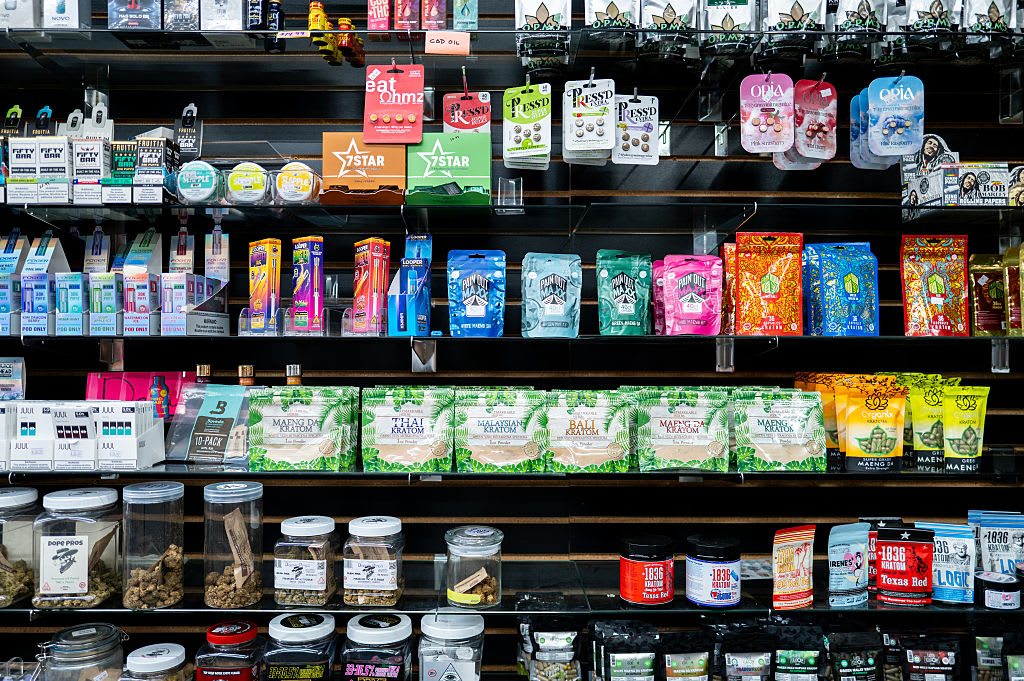Has legal pot for adults impacted teens' view of drug's dangers?
Teenagers’ attitudes about marijuana are changing at the same time that more states are making the drug legal. A new study in the Journal of the American Medical Association finds some teens perceive pot as having a lower risk than in the past.
Recreational marijuana use is now allowed in eight states and Washington, D.C., while medical use is legal in 28 states and D.C. The legal marijuana market is expected to generate around $22 billion a year by 2020.
Despite legalization in California, medical marijuana dispensaries like Sparc are still the only kind of places where it’s legal to buy marijuana in California while the state develops rules for the retail sale of marijuana to the sale of anyone over the age of 21. But a new study suggests that legalization for adults may impact the way some teenagers view the risks of marijuana, reports CBS News correspondent John Blackstone.
Clay Hurst and his mother, Sylvia, now agree that teenage use of marijuana can be dangerous. But when Clay was 14 years old, he didn’t see the danger.
“My son is an addict,” Sylvia said.
“Was an addict,” Clay said.
“He has been in recovery for over five years,” Sylvia said.
He was a young teenager when he started using marijuana.
“What attracted you to it?” Blackstone asked.
“The taboo idea,” Clay said. “As knowing of course your parents are not going to support you as a 14-year-old smoking marijuana, so it’s kind of the danger or the rush of that.”
“He started using very casually and then it started being more of a daily habit and that was quite alarming,” Sylvia said. “He was just really spaced out and zoned out all the time.”
Clay went on to use ecstasy, prescription drugs and alcohol.
He admitted he “absolutely” put his family through some tough times.
“Fortunately for me, I was one of the lucky ones… for a lot of my friend, it did not end up that way. I had a few die, a few overdose,” Clay said.
Today he helps educate young people about the dangers of drugs.
“We know that early initiation of marijuana use, that is initiation at adolescence is associated with a greater risk for marijuana dependence later on in life,” said Magdalena Cerda, co-author of a new study of marijuana use by teenagers in Washington and Colorado, two states that legalized recreational use for adults in 2012.
“We found that very different things in Colorado and Washington,” Cerda said.
In Washington state, she found that since 2012, marijuana use among eighth graders has increased by 2 percent and among tenth graders by 4.1 percent. The perceived harmfulness of pot has declined about 15 percent among eighth and tenth graders.
But in Colorado, her study found legalization had no impact on marijuana use by teenagers – a fact seized on by Ethan Nadelmann of the Drug Policy Alliance, which promotes marijuana legalization.
“For many years people have argued that it’s a bad idea to legalize marijuana for adults because that will lead to more young people getting in trouble with marijuana. If anything the latest results prove that that is simply not the case,” Nadelmann said.
But Cerda said the conflicting results in Washington and Colorado point to the need for more study of the impact of legalization on teenagers.
“We do know that regular long-term use is associated with more problems like mental health problems, economic and social problems like financial difficulties, job loss... So that’s what we really want to prevent,” Cerda said.
Sylvia Hurst worries that legalization in California will lead more teenagers down the road Clay once followed.
“The effects of it are not always understood by youth,” Sylvia said.
It could be at least another year before sellers in California receive permits for the retail sale of marijuana. In Massachusetts, another state that voted in November to legalize recreational use, lawmakers have decided to delay retail sales until mid-2018 while they develop rules to safely and effectively oversee those sales.



